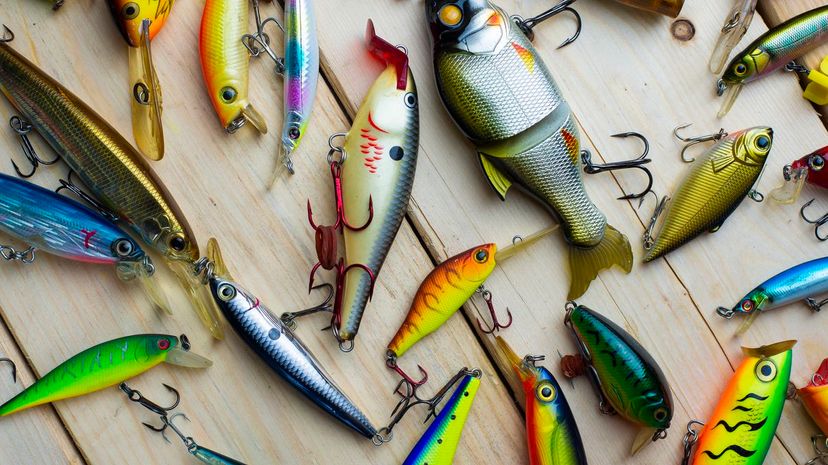
About This Quiz
Around 40,000 years ago is when humans first started fishing, making fishing one of these few past times we have that predates civilization as a whole. You can imagine our ancient ancestors looking into a river, seeing those fish and thinking, "I want that!" And then they found a way to snag them, first with nets and spears and later with hooks and lines. We've come a long way. And any activity that has 40,000 years of innovation behind it has some integral gear that will make it an easier experience. After all, you're not just heading out there with a bamboo rod and a curved piece of sharp bone for a hook, are you? Of course not! You have scales to measure the weight of your trophy catch! You have knot tying tools to get your hooks on faster! You have a sonar fish finder to see how many fish are swimming under your boat and at what depth!
There's a ton of fishing gear you could bring with you, so let's see just how many of them you can guess - from the simplest of hooks to the more complex lures and tools. Grab your tackle box and take the quiz!
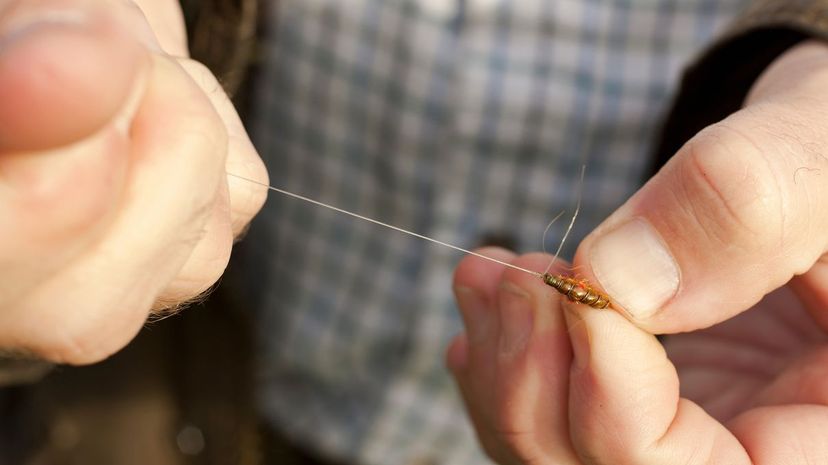
Fishing line is made from a wide variety of materials these days, including nylon, PVDF, Dacron and more. Catgut was the line of the day back in the mid to late 1660s, and silk became an option in the early 1700s.
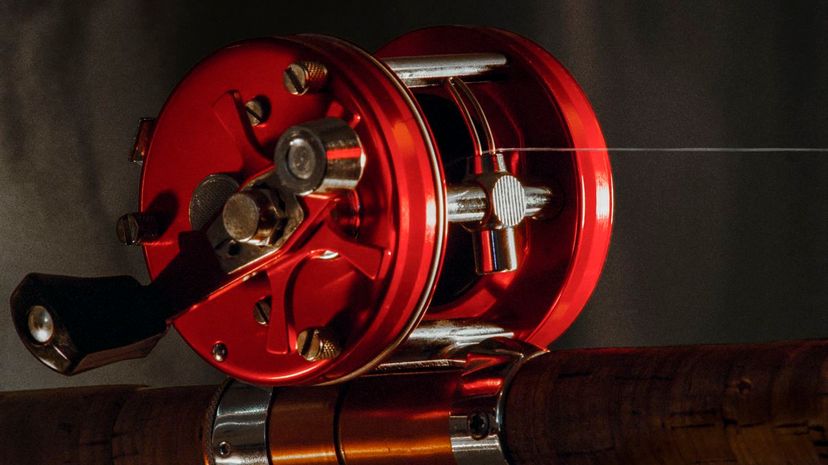
Fishing reels were invented in China sometime during the Song Dynasty, which dates back to the year 960. One of the first known images of a fishing reel can be traced to paintings from around the year 1195.
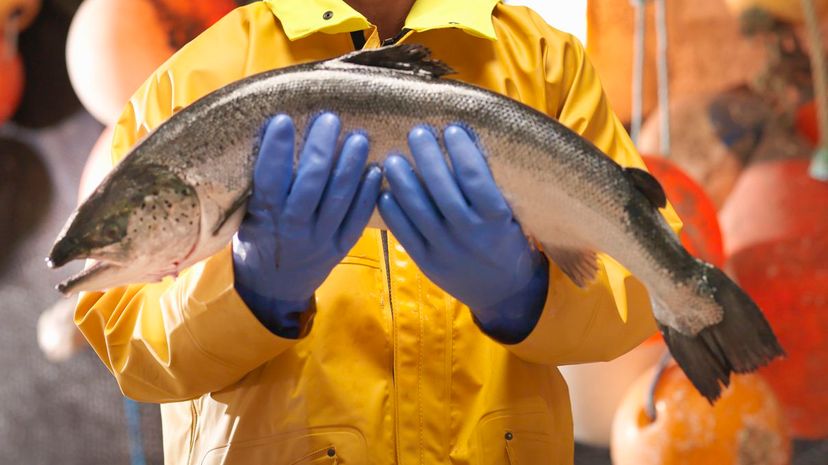
A good pair of fishing gloves is invaluable, especially for cold weather fishing and ice fishing. They should be waterproof and also thin enough that they don't interfere with your ability to comfortably cast a line
Advertisement
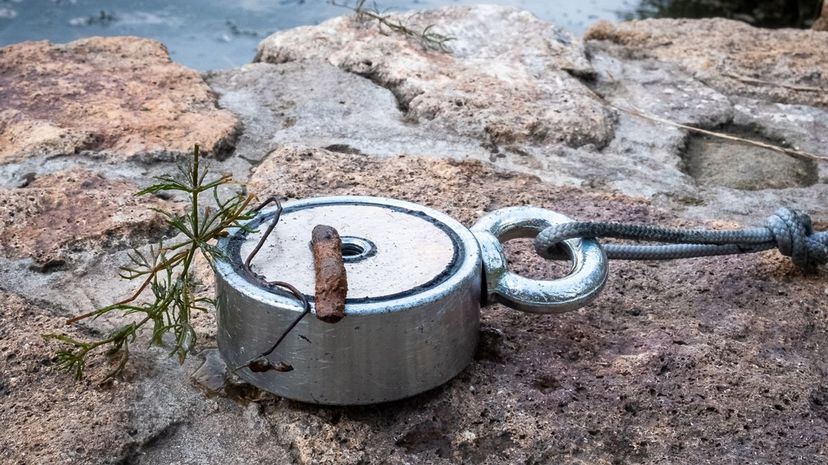
Powerful fishing magnets are useful to have in your tackle box in case you lose something in the water and need to pull it up again. They come in a variety of strengths, some capable of lifting up to 600 kg, for those times when you want to fish not for literal fish but for whatever sunken treasure may be down there.
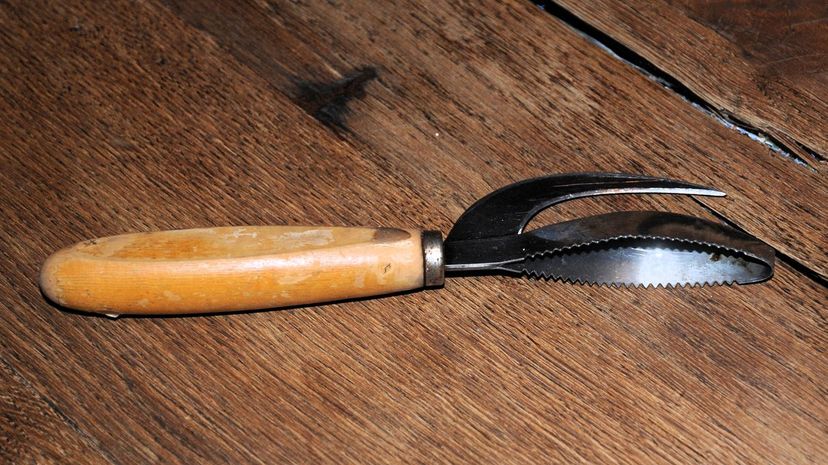
Scalers come in a variety of shapes and sizes, but they all serve the same purpose of quickly and efficiently removing the scales off a fish so you can finish cleaning, gutting, and then cooking it.
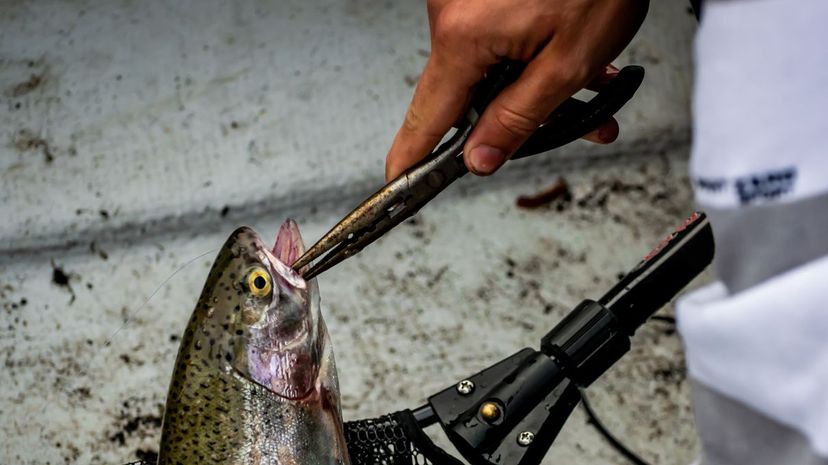
Ay good tackle box needs a pair of pliers in it. These can help remove hooks that get stuck in fish, skin, or other things, as well as bending them, tightening or cutting lines, changing spinners or split rings, and all kinds of other tasks.
Advertisement
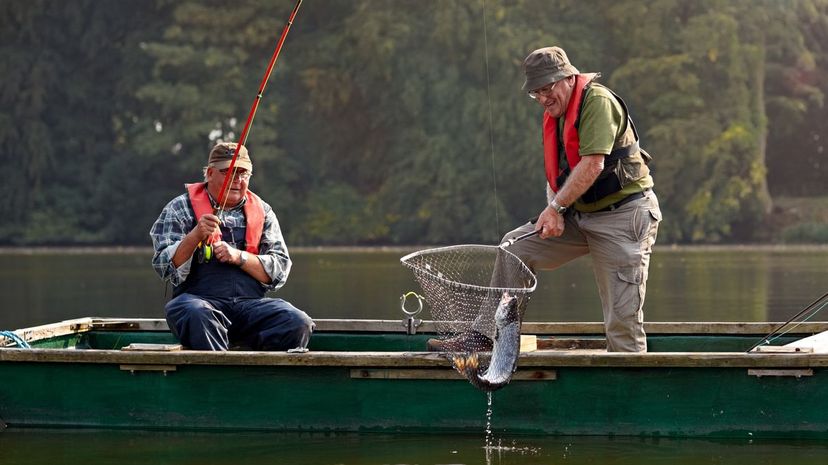
Nets are the oldest piece of fishing equipment in the world, far outdating things like rods and reels. One of the earliest known nets is called the Antrea Net, and it is from about 8,500 BC. Sinkers from nets have been dated to 27,000 BC.
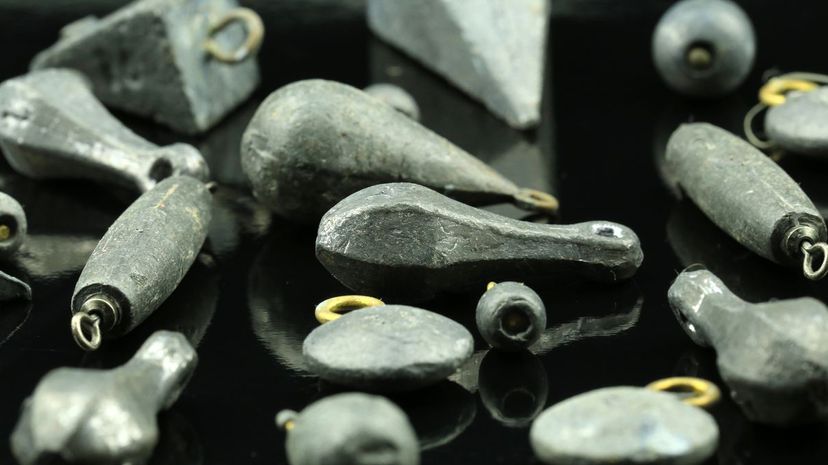
Way, way back sinkers were made of anything heavy enough to sink in water, like rocks. When we started manufacturing them, lead was an easy choice because it's both soft and heavy. However, lead is also pretty toxic, so it's no longer a popular choice.

A simple hand scale is a pretty useful took that will fit in a tackle box. Modern ones are digital, and older versions use tension and springs to give you an accurate reading anywhere from 10 pounds to over 50 pounds, depending on the type of fishing you're doing.
Advertisement
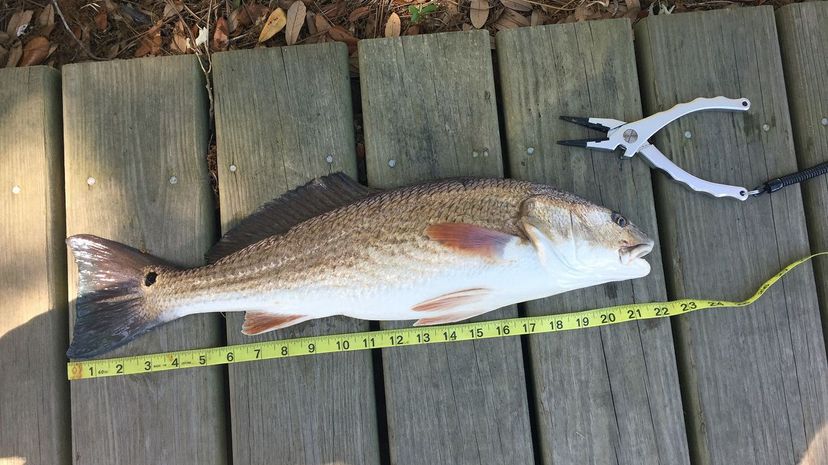
A measuring tape is a handy tool to have in your tackle box for measuring not just the length of your latest trophy fish, but also if you're fishing in a time and place where size matters. Sometimes you can only keep fish of a certain length, so this helps.
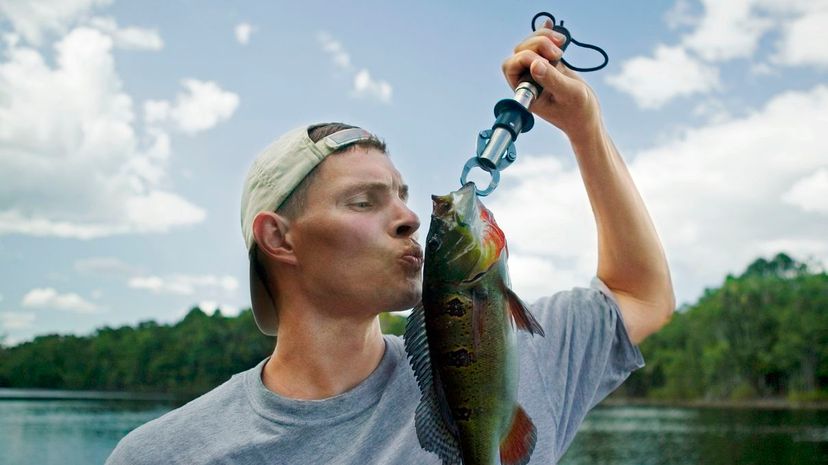
Fish grippers look like a medical tool, but they're pretty simple, a clamp device you can use to grip a fish usually by the lips or sometimes even by its entire body to pull it from the water. This is safer for you in case the fish is bitey, and it can also cause less damage to a fish.
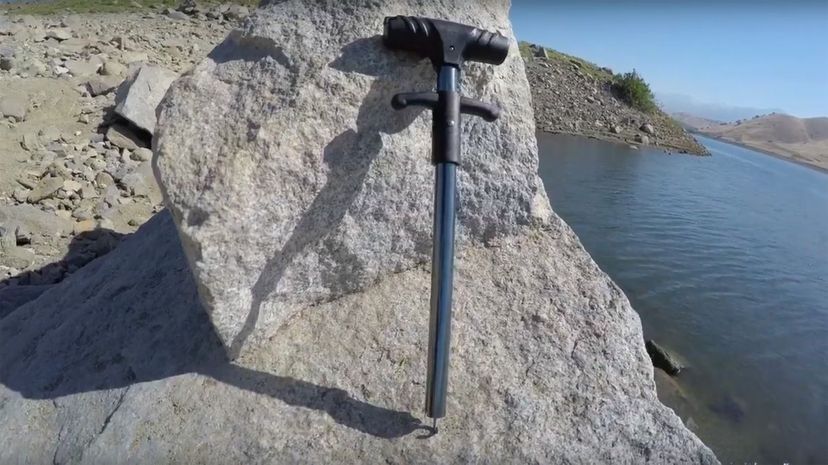
A hook remover makes getting a fish off the hook pretty easily. It has its own hooked end that you can run down the line to the hook in the fish's mouth, and once it's hooked on the curved part of the metal embedded in the fish, simply turn in the opposite direction to how the hook is embedded and it roll it back, pulling it from the fish.
Advertisement
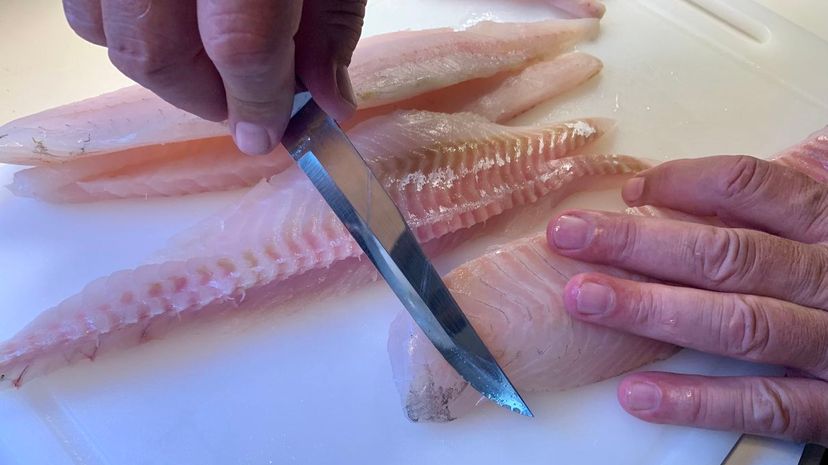
A sharp filet knife is important for those who want to eat their catch and plan to prepare proper filets. A thin, flexible blade helps maneuver around the man thin, small bones a fish in a way most knives would not be able to do.
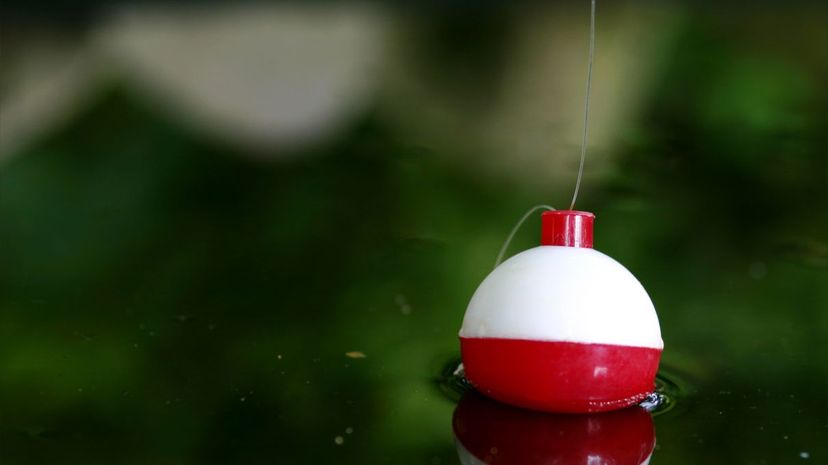
A fishing bobber can also be called a float and has several useful purposes. First, when a fish bites, you'll be able to clearly see the bobber get pulled under. But it also ensures your bait is floating at a specific depth, depending on where on the line the bobber is fixed, and it can even drift the bait to a specific distance in a current.
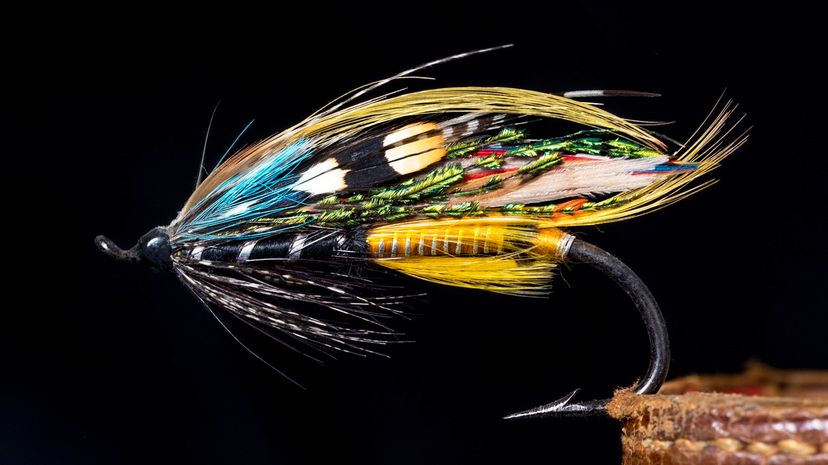
Fly fishing is its own kind of fishing, and there's an art to making your own flies by hand, often with things like feathers to decorate them. They're meant to emulate actual flies and other insects to which a fish will be attracted.
Advertisement
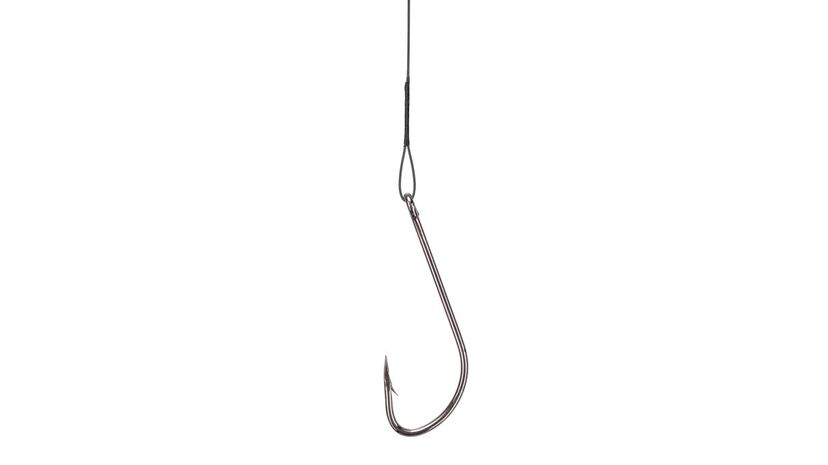
When you ask for just a hook, you're probably getting a simple bait hook. It has the simplest design made from basic materials. It'll have the barbed end to hold bait in place and can be found pretty much anywhere fishing supplies are sold.
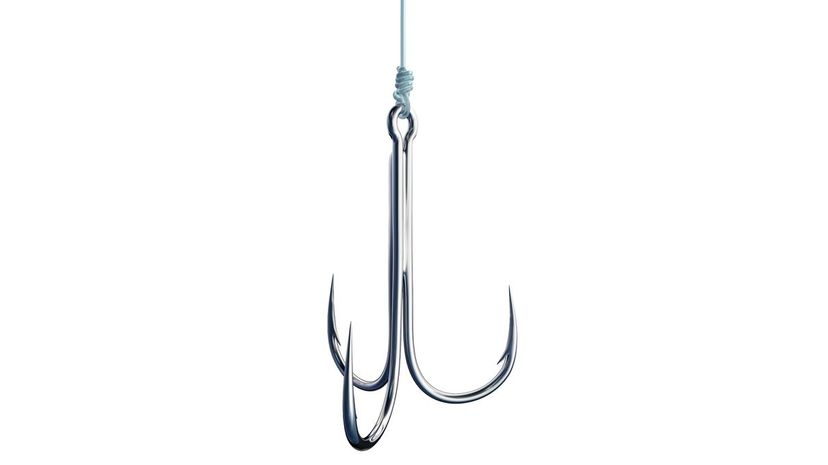
A treble hook is the type of hook that is three hooks together connected to a central point on which your line is attached. These are good for things like cut bait when fishing for catfish, or minnows when trolling salmon.
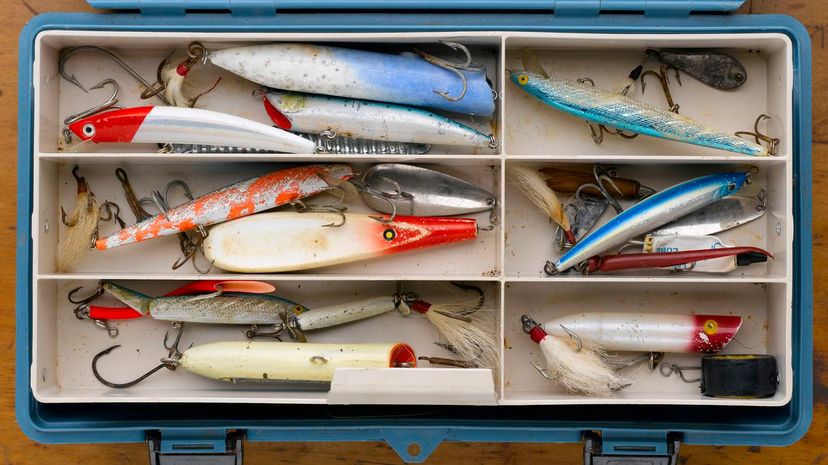
A tackle box is the box in which you keep your tackle, which is pretty simple, right? A good tackle box should have separate compartments for different lure and hook types, clear panels to see what's inside, and some even have drawers you can pull out for easier access.
Advertisement
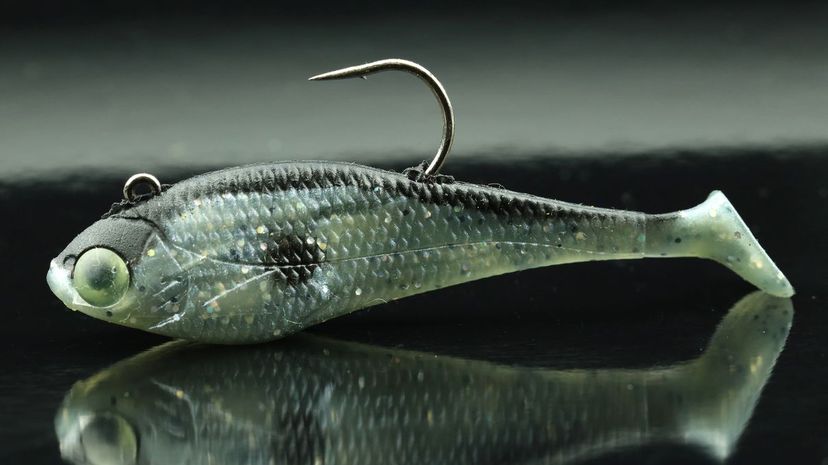
A jig is a weight with a hook on the end that is then dressed up in some way. A skirt or feather or other decorative element transforms it from a simple weight to what looks like a fly or anything else that might be enticing to a fish. It's a versatile lure that can be used for just about any type of fishing.
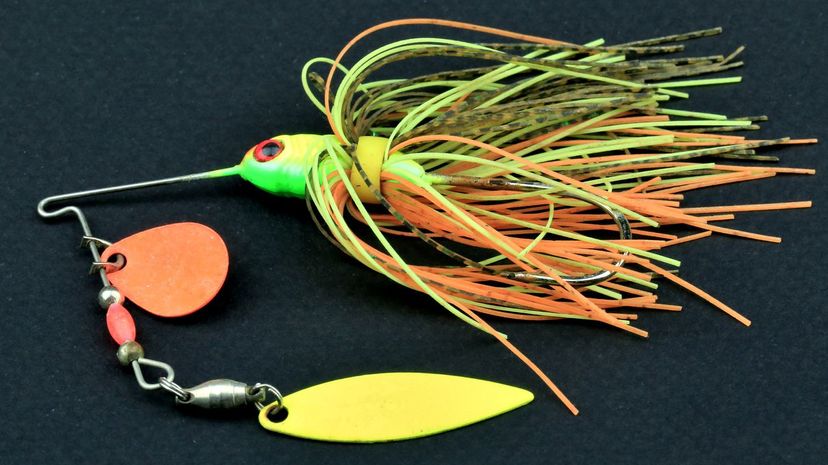
A spinner lure is a hook with a spinning part attached to a metal shaft that is set in motion as you reel it back in. The motion of it moving in the water causes it to spin in a flashy and noisy way that attracts fish.
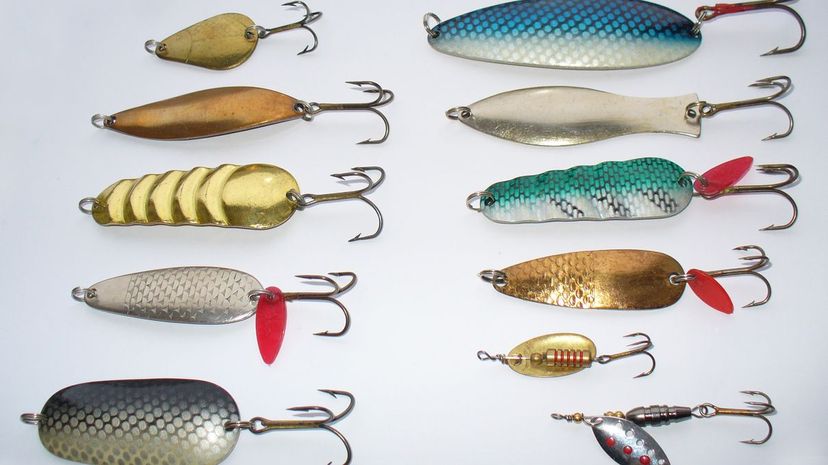
Spoon lures get their name for looking like the concave end of a spoon with a hook at the end. As they move through the water, they reflect light and create motion that attract fish. It is believed that the first spoon lures were literally broken spoons that anglers used.
Advertisement
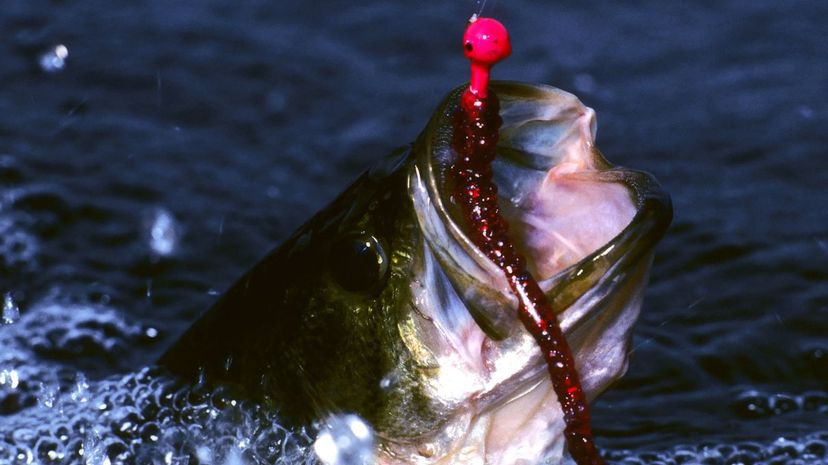
Soft plastic lures come in a variety of shapes and sizes, but the most common is probably a fake worm. It looks like a worm, but it's made of a jelly-like material. Other shapes can be frog legs, minnows, crayfish and more.
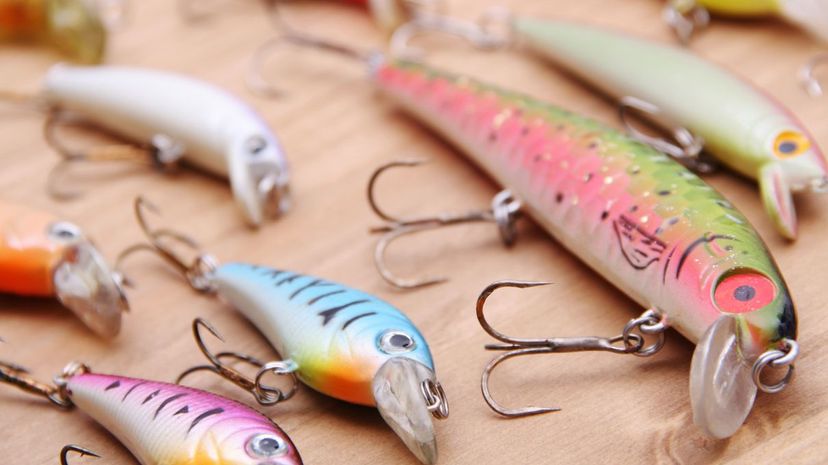
A plug lure has at least two treble hooks on it and will be shaped like a small fish, a frog, or something similar. The lip on the front works like a rudder and makes it move up and down as you reel it in, mimicking swimming motions.
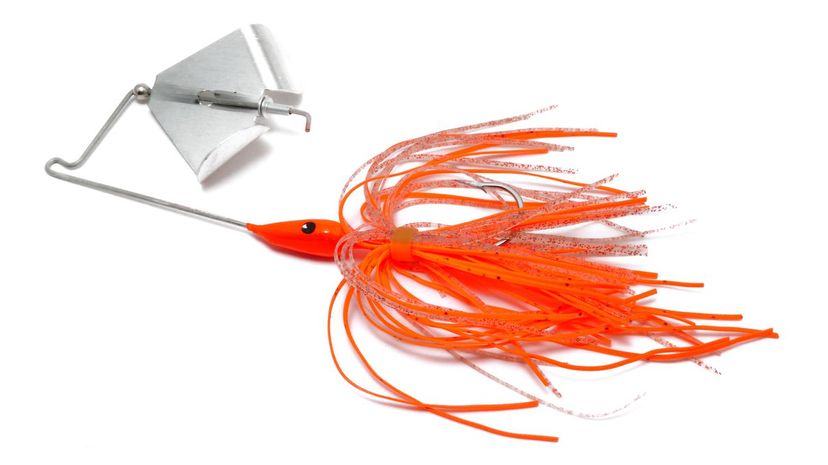
A buzzbait is sometimes called a spinner bait and features two parts on different arms of the same bait. One part is a spinner, and the other part is a dressed or decorated hook of some type. It combines two effective lures into one type.
Advertisement
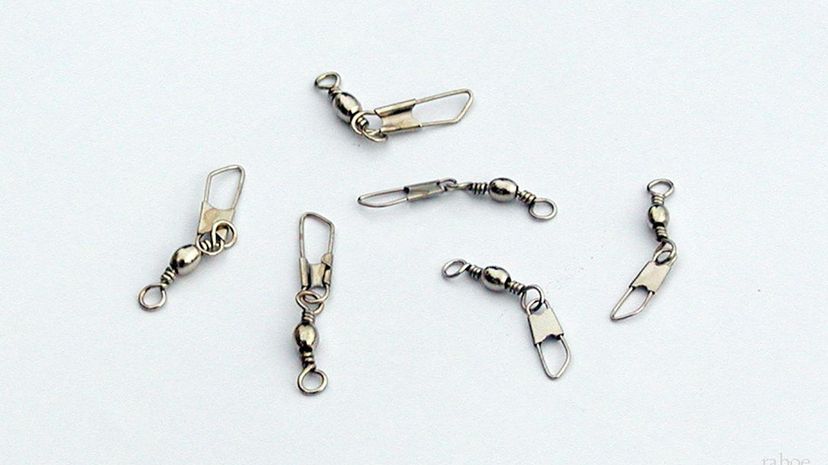
A swivel is just a small device that connects two sections of line with the ability for the loops on the end to spin. This is useful for when your bait has a tendency to spin and move in the water in a way that might twist your line. It can move freely with a swivel in place.
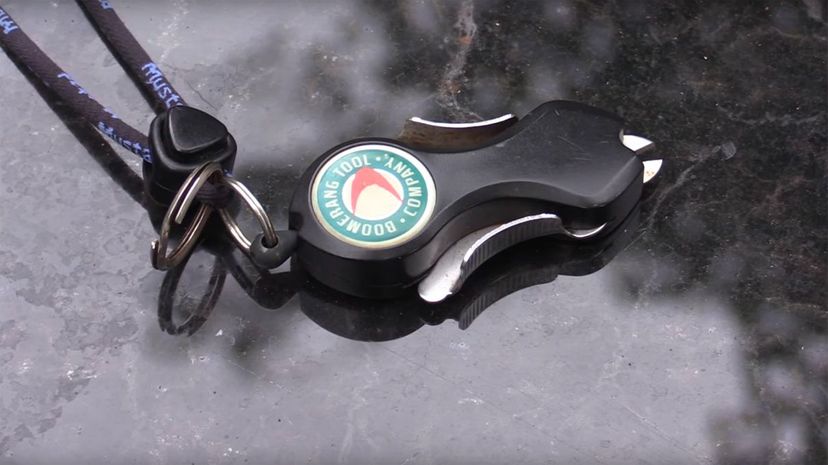
You could use a simple pocket knife for this task, but a small, easy-to-use line cutter will snip your line with ease. This is especially helpful if you're using a more durable type of line since some are meant to stand up to some serious punishment.
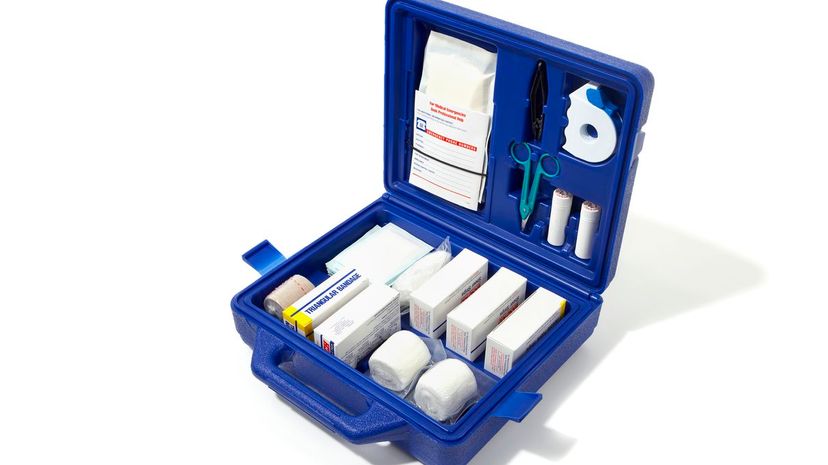
Not everyone thinks they need a first aid kit, but there's a lot of potential to hurt yourself when fishing. A hook in the hand may not end your day, but there's a chance it could get pretty badly infected if it's not cleaned up quickly.
Advertisement
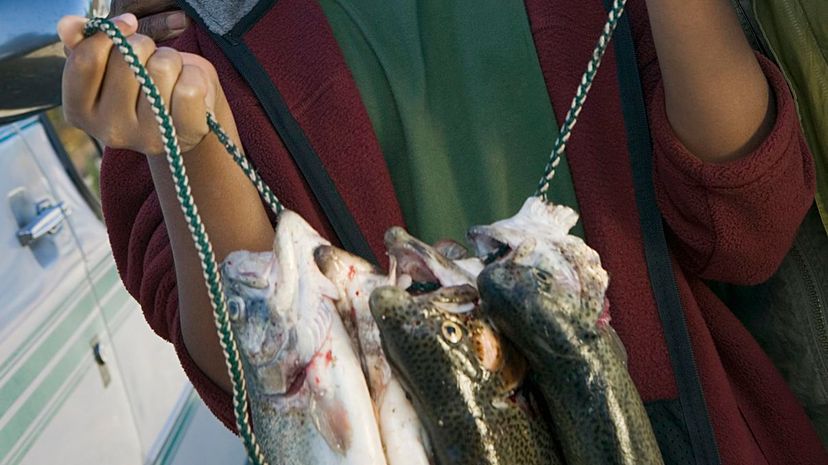
A fish stringer is a string on which you put fish. It's usually just a simple line with some clips on it that you can attach the fish to and leave in water so they don't dry out or get eaten by flies while you continue fishing.
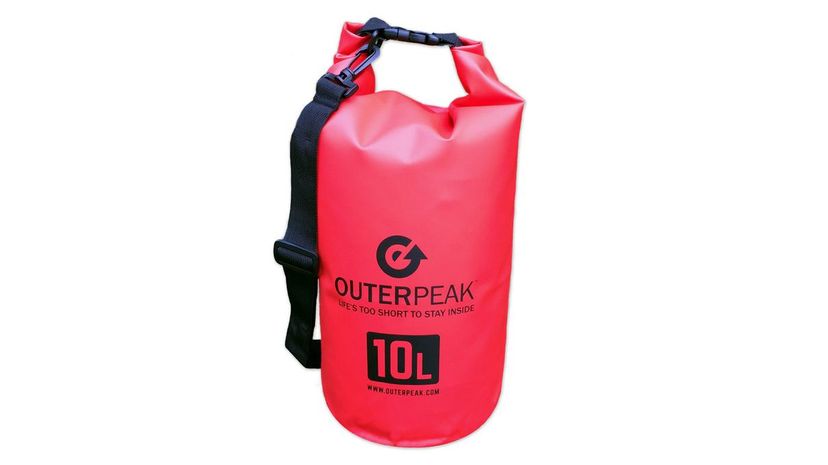
A dry bag is a practical piece of equipment to bring along on a fishing trip. It should float and, of course, be waterproof so you can store whatever you want to stay dry in it, just in case something happens.
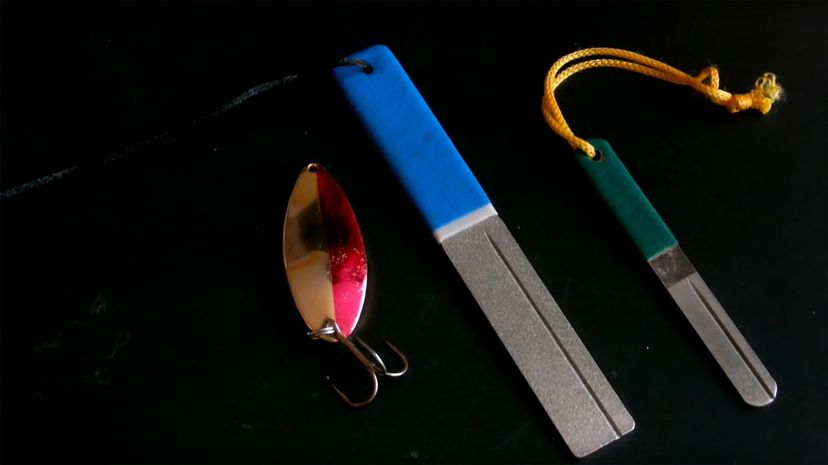
If you're serious about keeping a hook in tip top shape, then a hook file is key. After any catch, or especially if you get it snagged on something, a hook file can get the burrs off and ensure your hook is sharp and ready to go again.
Advertisement
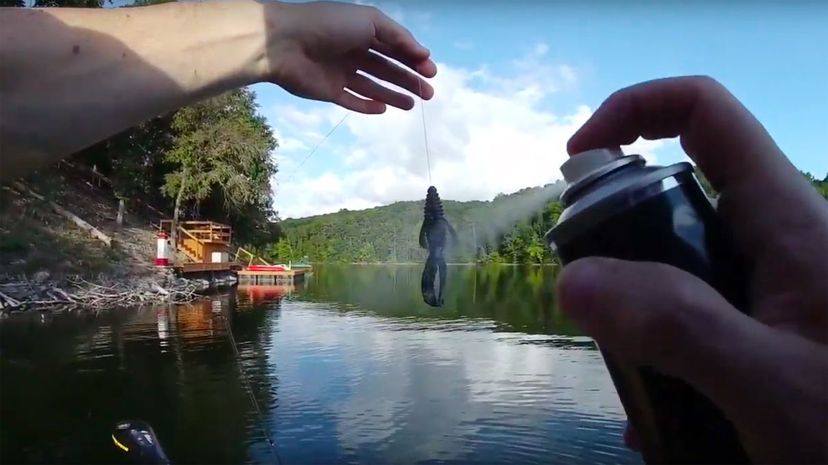
Fish attractant is a type of scent meant to make a lure more enticing to fish. But you need to research these, since something oil-based will be useless as it's not water soluble and many fish will never notice it because they can't smell that sort of thing.
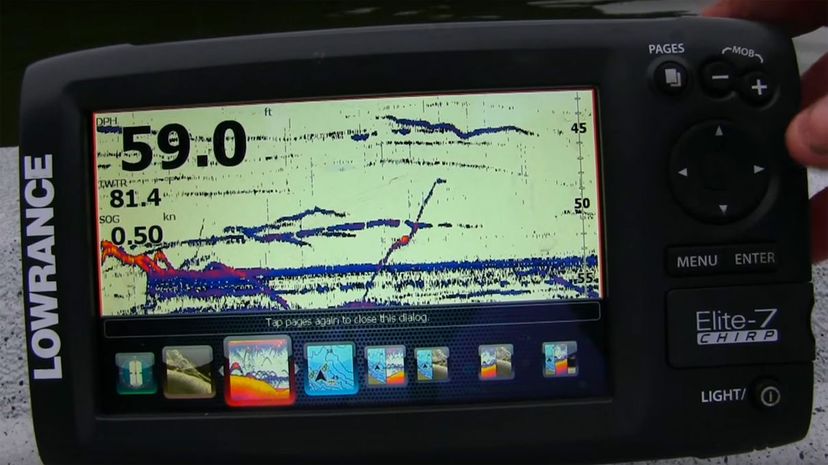
A fish finder is used from a boat to send sonar pulses into the water and send back signals to let you know what's below you, including fish. It should be able to tell you not just where the fish are but the depth of the water below and any significant debris down there as well.
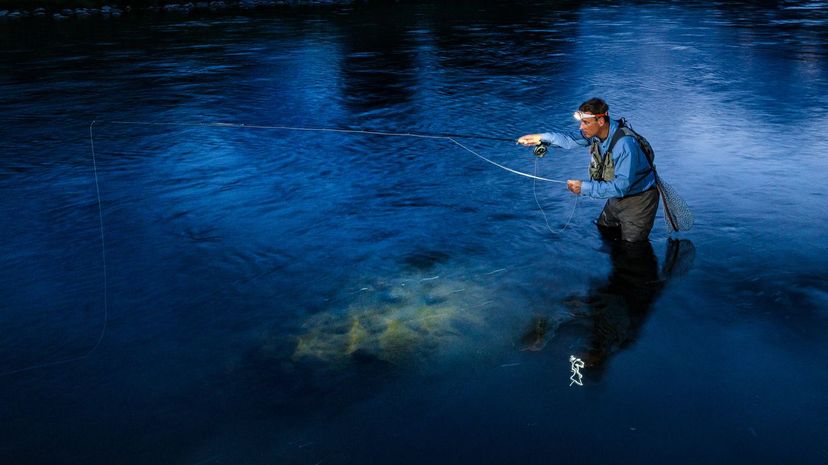
Some fish are better caught at night, but you'll still need to see what you're doing, and the best thing to use is a headlamp. It's superior to a flashlight because it doesn't require your hands, and it's always pointed in the direction in which you're looking.
Advertisement
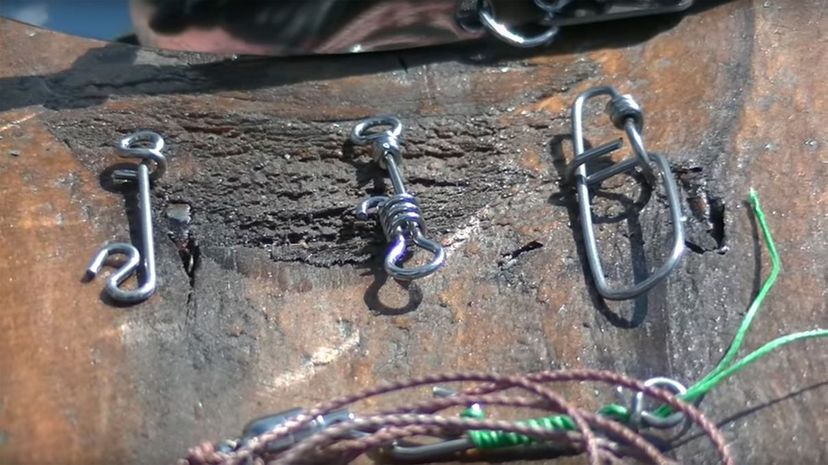
A snap is a small device you can put on the end of a line that allows you to snap new hooks on and off so that you need not waste time tying a new one on each time. They save time, but they can break if you're hauling in something heavy.
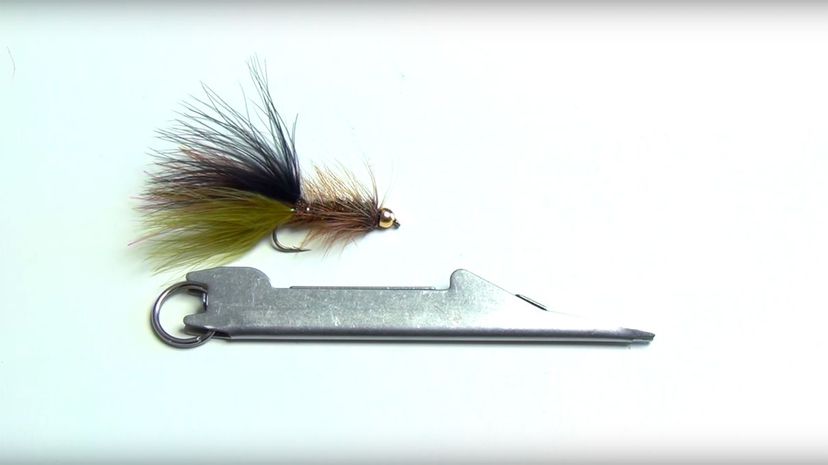
When you need to tie some nail knots for fly fishing, this knot tying tool is a huge time saver that gets the job done in seconds, freeing you up to get back to actually doing some fishing. There are other knot tying tools that can also help you knot your line to hooks and lures.
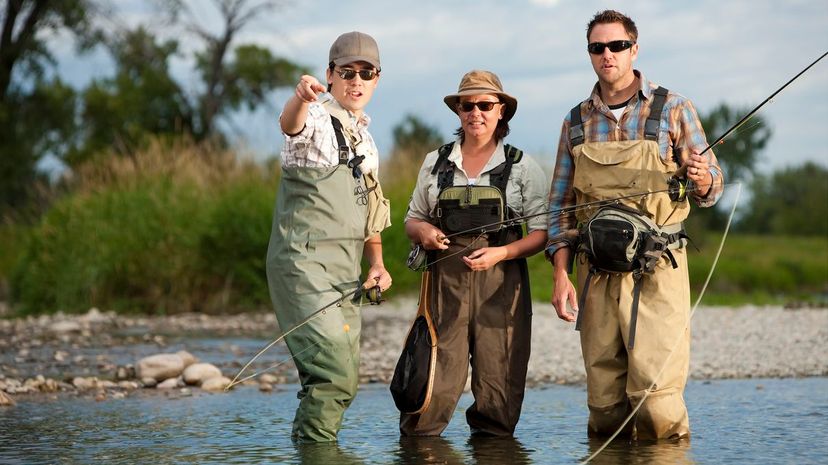
A good pair of hp waders lets you do just what the name implies, wade out to your hips in the water without getting wet. These are good for fly-fishing in shallow but wide rivers so you can get out to the center where the fish are.
Advertisement
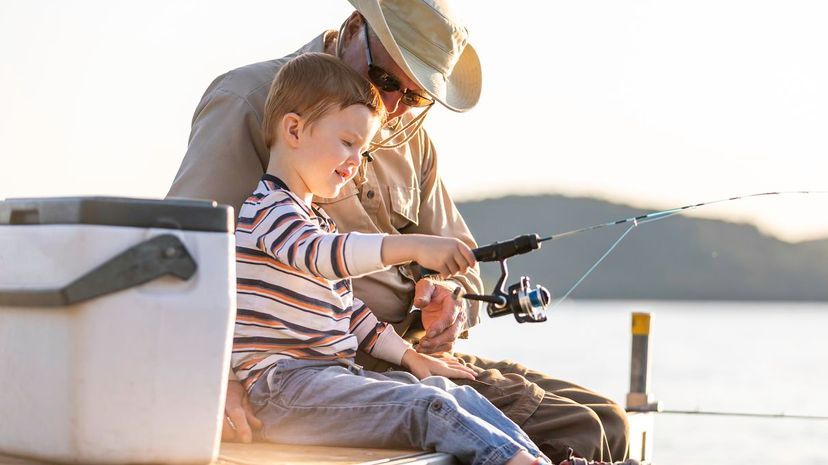
You can always just use a coffee can to hold your bait or anything else, but if you're going to be fishing for a while and want to keep your bait alive, a bait cooler is handy. They can even keep your bait at the right temperature .
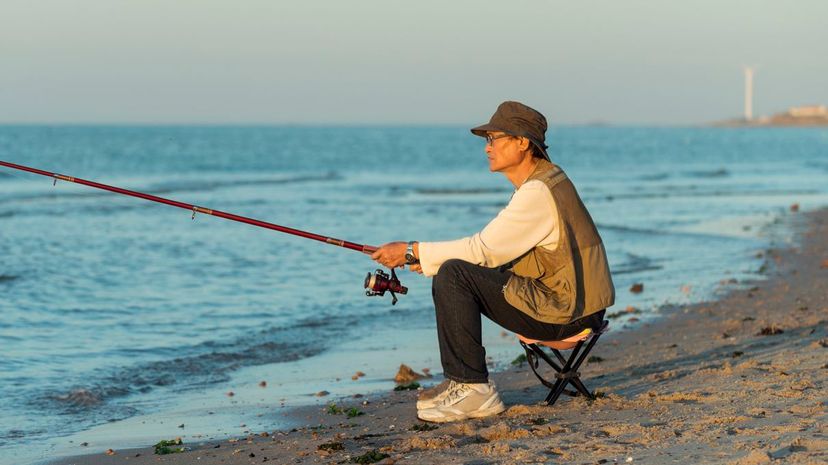
Nothing too tricky here, just a good quality folding chair or stool to sit on by the water's edge will do. Fishing is a marathon, not a sprint, so unless you want to stand in place for an hour or two or six, pull up a chair and relax.
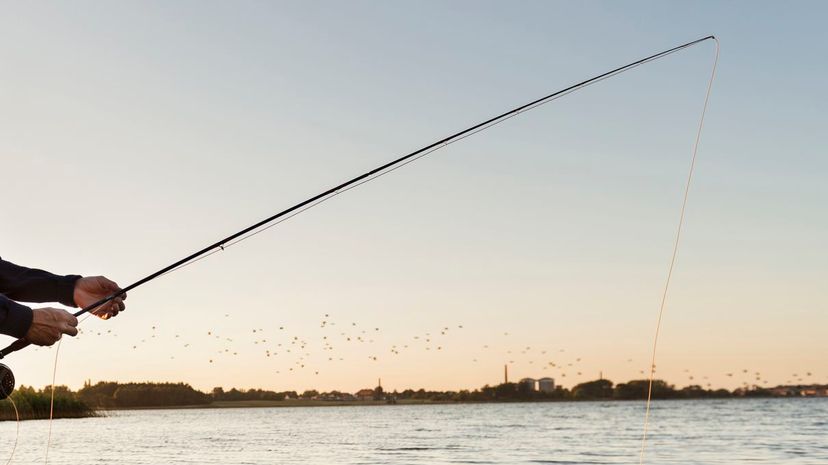
Fishing rods date back to at least 2000 BC. Early rods were just sticks with a line at the end. Old-school rods were often made of wood - like bamboo which had some flex to it - but now composite materials are much more common.
Advertisement
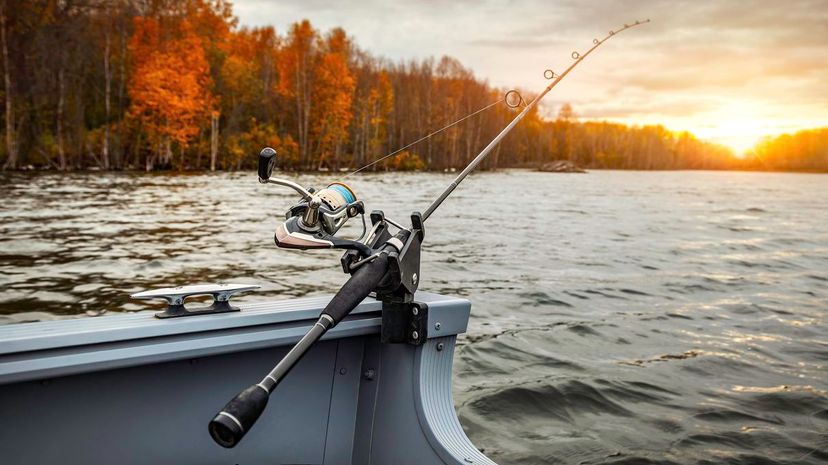
Fishing is all about patience, so sometimes you need to cast and just wait to see what happens. If you're not inclined to hold the rod in your hands the entire time, you can set it in a rod holder to keep it at the correct angle.